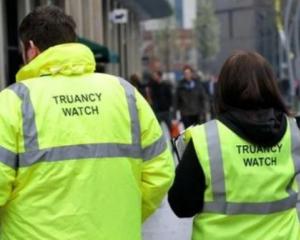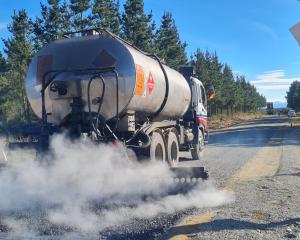
Around 1500 children attend early childhood education centres in the district and a high number of the 300 or so children who start primary school each year have attended one.
The unique profiles are the result of a special research project begun last year to make the transition from early childhood to primary education a seamless one.
Advance Ashburton funded the project, which was undertaken by a group of dedicated early childhood and new entrant teachers who are members of the Hakatere and Opuke Kahui Ako (Community of Learners). Children usually leave early childhood centres with a learning journal/profile book that is part of any transition process. The early childhood teachers wanted to find out how useful these journals/books were, and to differentiate between the ‘‘nice to know’’ and the ‘‘need to know’’ information that would support a successful transition process for the child and family.
Nine out of the 14 members of the Hakatere (Ashburton) early childhood centres have actively participated in the research project, while all eight members of the Opuke (Methven, Lauriston, Rakaia, Dorie) centres were active participants. The group has been led and supported by professional development consultant, Liz Depree, as well as Across School Teachers from Hakatere (Anne Porter) and Opuke Kahui Ako (Rhian Dyer and Bridget Grant).
The early childhood teachers say feedback from trialling the first draft of the new profile in the last term of 2019 had been positive and the information pack will be available to all early childhood centres/services in 2020. They hope to gain consistency across the whole region so that they are all on the same page - moving towards a seamless education system, birth to 18 years of age, where children and their families experience successful transitions with minimal barriers.
Currently centres vary in the length of time they prepare children and their families for transition to school, but common to all in this new process is an opportunity to begin a conversation with the parent, the child and the teachers as to what authentic and useful written information needs to go with the child. One centre can have children moving on to nine different schools so the logistics are often tricky to manage.
The unique profiles are not about telling new entrant teachers that their new student can recite the alphabet or count to 100, but about whether that student is very shy, or very inquisitive or maybe has specific needs that better help them learn. The profile identifies a child’s strengths, what they’re working on, what they love, what does and doesn’t work for them. The valuable knowledge collected by early childhood teachers is passed on, educator to educator, through a process that is child-centred and meaningful. Early childhood and primary teachers agree that it is a relationship of trust and collaboration, like passing a ball that cannot be dropped.
Tiddlywinks owner Amanda Moore said a shy child might find standing up in front of the class on their first day a frightening experience, so new entrant teachers needed to know that. A deep thinker asking a question would need more information than was usually given.
The early childhood centres and schools have relished the opportunity to work together to be part of the research project, and believe the wellbeing and achievement assessments for each child in transition will enable a positive start.
Ms Depree said that after such a successful year in 2019 the group was applying to Advance Ashburton for funds to continue the collaborative research project this year and with an expected increase in active participation they envision growing consistency across early childhood. The first students with the new refined profiles will potentially start schools in February.














